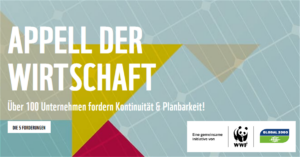 Die zunehmenden Schäden und Kosten der Erderhitzung und der großflächigen Zerstörung von Ökosystemen werden durch europaweite Krisen verstärkt. Daraus ergeben sich massive ökonomische, soziale und ökologische Folgen. Rasches und kontinuierliches Handeln ist eine Voraussetzung für den künftigen Erfolg des Wirtschaftsstandorts Österreichs. Nicht-Handeln hingegen zerstört Marktchancen und Arbeitsplätze. Vieles hängt daran, ob wir das Ziel der Klimaneutralität 2040 erreichen. In einem gemeinsamen Appell fordern 125 heimische Unternehmen die künftige Bundesregierung dazu auf, für Kontinuität in den politischen Zielen, Gesetzen und Förderungen zu sorgen. So entsteht ein dringend notwendiger und verlässlicher Rahmen für Planungs- und Investitionssicherheit sowie faire Wettbewerbsbedingungen.
Die zunehmenden Schäden und Kosten der Erderhitzung und der großflächigen Zerstörung von Ökosystemen werden durch europaweite Krisen verstärkt. Daraus ergeben sich massive ökonomische, soziale und ökologische Folgen. Rasches und kontinuierliches Handeln ist eine Voraussetzung für den künftigen Erfolg des Wirtschaftsstandorts Österreichs. Nicht-Handeln hingegen zerstört Marktchancen und Arbeitsplätze. Vieles hängt daran, ob wir das Ziel der Klimaneutralität 2040 erreichen. In einem gemeinsamen Appell fordern 125 heimische Unternehmen die künftige Bundesregierung dazu auf, für Kontinuität in den politischen Zielen, Gesetzen und Förderungen zu sorgen. So entsteht ein dringend notwendiger und verlässlicher Rahmen für Planungs- und Investitionssicherheit sowie faire Wettbewerbsbedingungen.
WWF Österreich. "Appell der Wirtschaft an die künftige Bundesregierung". WWF Österreich. Accessed November 05, 2024. https://www.wwf.at/... (Contributed by Gregory Autin).
Posted on 27/11/24
Recent Abstracts
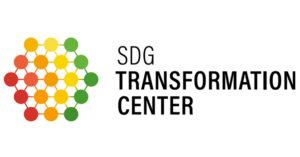
SDG Transformation Center
The SDG Transformation Center platform brings together tools and actionable instruments to support SDG data, policies and financing building on the latest insights from science and collaborates with stakeholders and decision makers. Its SDG Index and Dashboards rank countries on SDG attainment and report global SDG pr ...
Posted on 24/03/25
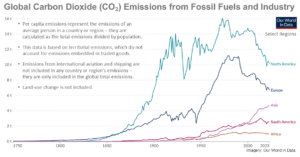
SDG Tracker: Measuring progress towards the Sustainable Development Goals
The SDG Tracker presents data across all available indicators from the Our World in Data database using official statistics from the United Nations and other international organizations to facilitate monitoring of progress on the UN Sustainable Development Goals (SDGs). It is kept up-to-date with data and SDG developm ...
Posted on 21/03/25
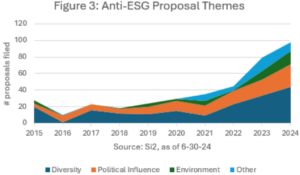
Anti-ESG Proposals Surged in 2024 But Earned Less Support
Anti-ESG proposals flooded U.S. corporate annual meeting agendas in 2024 by shareholder proponents who do not support limiting corporate environmental impacts, promoting diversity, or providing investors with more ESG disclosure, filing more than 100 shareholder proposals as of June 30, 2024. Support averaged only 1.9 ...
Posted on 19/03/25
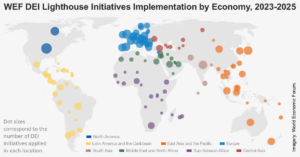
Diversity, Equity and Inclusion Lighthouses 2025 – Insight Report
Research consistently demonstrates the long-term benefits of inclusive policy-making and sustained diversity and inclusion programs, making inclusion a strategic imperative that promotes sustainable growth and resilience in the face of global risks and challenges. Anchoring diversity and inclusion in the business worl ...
Posted on 19/03/25
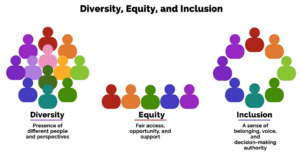
Diversity, Equity and Inclusion (DEI)
Diversity, equity and inclusion (DEI) are different but complementary concepts. Diversity focuses on the representation of different groups in the organization. Equity recognizes that each person has different circumstances and needs. Inclusion is about involving individuals and groups with their unique personal cha ...
Posted on 19/03/25
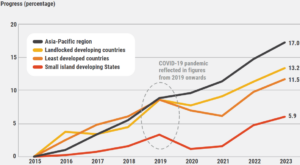
Navigating Association of Southeast Asian Nations-Republic of Korea (ASEAN–ROK)’s Development Cooperation Agenda in Post-2030 Dialogue: Potentials and Challenges
The Association of Southeast Asian Nations (ASEAN) and Southeast Asian countries have been engaging more visibly and actively in the Sustainable Development Goals (SDGs) dialogue than the millennium development goals domain. However, ASEAN has not been observed championing Agenda 2030 and retaining the SDGs on the glo ...
Posted on 18/03/25
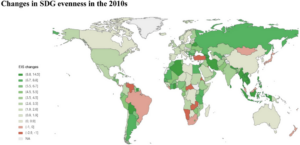
Scientific Evidence on the Political Impact of the Sustainable Development Goals
In 2015, the United Nations agreed on 17 Sustainable Development Goals (SDGs) as the central normative framework for sustainable development worldwide. The effectiveness of governing by such broad global goals, however, remains uncertain and the question arises whether these 17 SDGs have had any political impact withi ...
Posted on 18/03/25

SDGs and Inflation
The term "greenflation," which combines "green" meaning decarbonization and "inflation" meaning rising prices, has become widely known. As investment in fossil fuels has been curbed, demand for natural gas, which can have lower greenhouse gas emissions than coal, has increased, causing energy prices to rise. Addressi ...
Posted on 18/03/25

Scientists Alarmed: Lack of Political Action against Climate Change
Six out of nine planetary boundaries have already been breached with the seventh is about to be breached, too. Despite global promises, crucial policies fall short, which causes alarm amongst scientist. Carbon emissions are on the rise, natural feedback loops spiral downwards, and essential biodiversity targets remai ...
Posted on 18/03/25

2024 SDG Report: Global Progress Alarmingly Insufficient
The 2024 Sustainable Development Goals Report highlighted that nearly half the 17 targets are showing minimal or moderate progress, while over a one-third are stalled or going in reverse, since they were adopted by UN Member States back in 2015 to bring peace and prosperity for people and the planet. “This report is k ...
Posted on 18/03/25
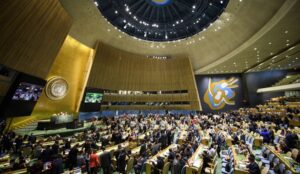
U.S. Rejects UN Sustainable Development Goals
The U.S. under the Trump administration stated that it “rejects and denounces” the United Nations Sustainable Development Goals (UN SDGs), the key global goals adopted by nations unanimously in 2015 as part of the 2030 Agenda for Sustainable Development, aimed at tackling global environmental and social challenges. Th ...
Posted on 18/03/25
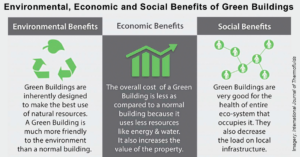
The Role of Green Buildings in Achieving the Sustainable Development Goals
Numerous environmental, social, and economic development challenges are covered under the Sustainable Development Goals (SDGs) and green building plays a key role of in achieving the UN’s SDGs. Overcoming barriers and the adoption of solutions and methods to integrate non-renewable and renewable resources is a promisi ...
Posted on 14/03/25

Trump 2.0: An Assault on Science Anywhere is an Assault on Science Everywhere
The Trump administration has launched an unfounded assault on science and initiatives, on research institutions and international organizations and on academic freedom and people’s rights. It is firing employees from national agencies in key disciplines that protect public health, the environment and people’s safety a ...
Posted on 13/03/25

Trump Trade War vs Sustainability
A trade war occurs when countries impose tariffs or other barriers on each other’s goods, which can lead to a global conflict that unsettles global trade relations. When major players like the United States, the European Union, and China engage in trade disputes, entire sectors that depend on global collaboration and ...
Posted on 12/03/25
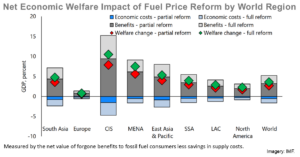
IMF Fossil Fuel Subsidies Data: 2023 Update
Globally, fossil fuel subsidies were $7 trillion in 2022 or 7.1% of GDP. Explicit subsidies – the undercharging for supply costs – have more than doubled since 2020. This equals 18% of the total subsidy, while nearly 60% is due to undercharging for global warming and local air pollution. Differences between efficien ...
Posted on 11/03/25

